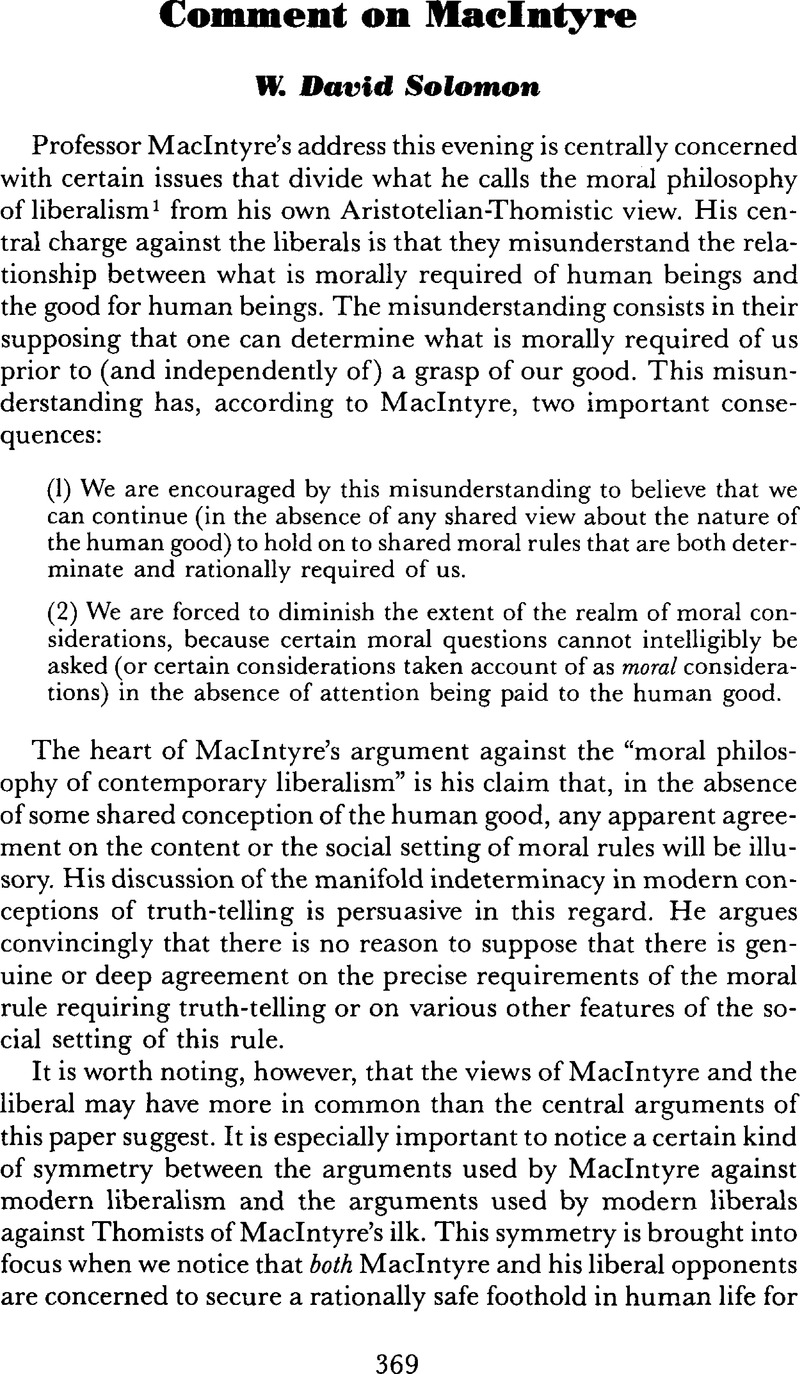No CrossRef data available.
Published online by Cambridge University Press: 05 August 2009

This comment was written to be delivered to a large interdisciplinary audience on the occasion of Professor Maclntyre's inaugural lecture as McMahon/Hank Professor of Philosophy at the University of Notre Dame on 18 April 1990. I considered revising and lengthening it for publication, but decided rather to allow it to be published with only minor stylistic changes as part of the record of one of the most intellectually stimulating evenings of my life.
1. The rich and complex recent literature on the moral and political doctrines of liberalism makes clear how difficult it is to reach any kind of agreement on a precise characterization of liberalism. I will, as much as possible, avoid these issues, and intend to mean by liberalism what Maclntyre means by it. Later in my comment, however, I will suggest that something might be gained by departing both from Maclntyre's characterization of liberalism and the liberals own self-characterization.
2. Parfit, Derek, Reasons and Persons (Oxford: Oxford University Press, 1984), p. 453.Google Scholar
3. Ibid., p. 454.
4. They, of course, have appeared to many persons as much richer and more attractive than the Aristotelian-Thomist alternative, and as capable of inspiring loyalty and great deeds.